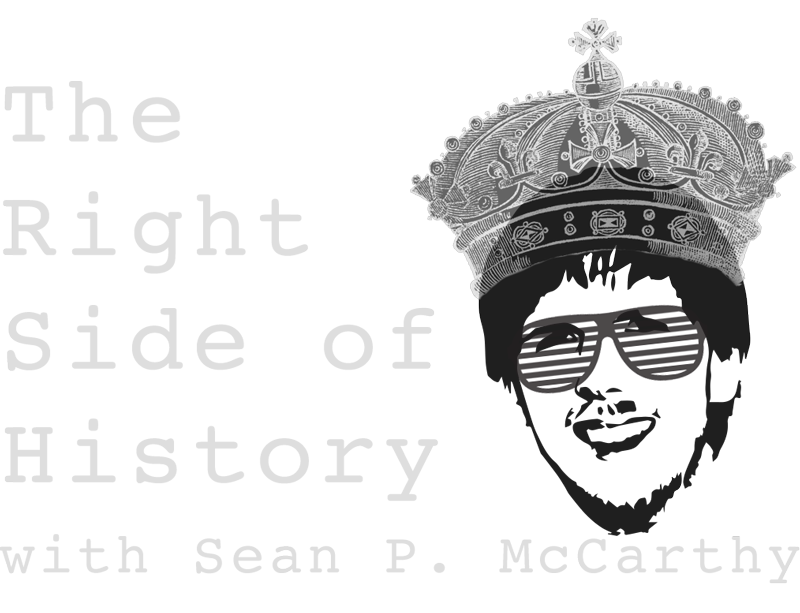Recently twitter user and podcast host Alice Avizandum decided to solve the murder of President Kennedy.
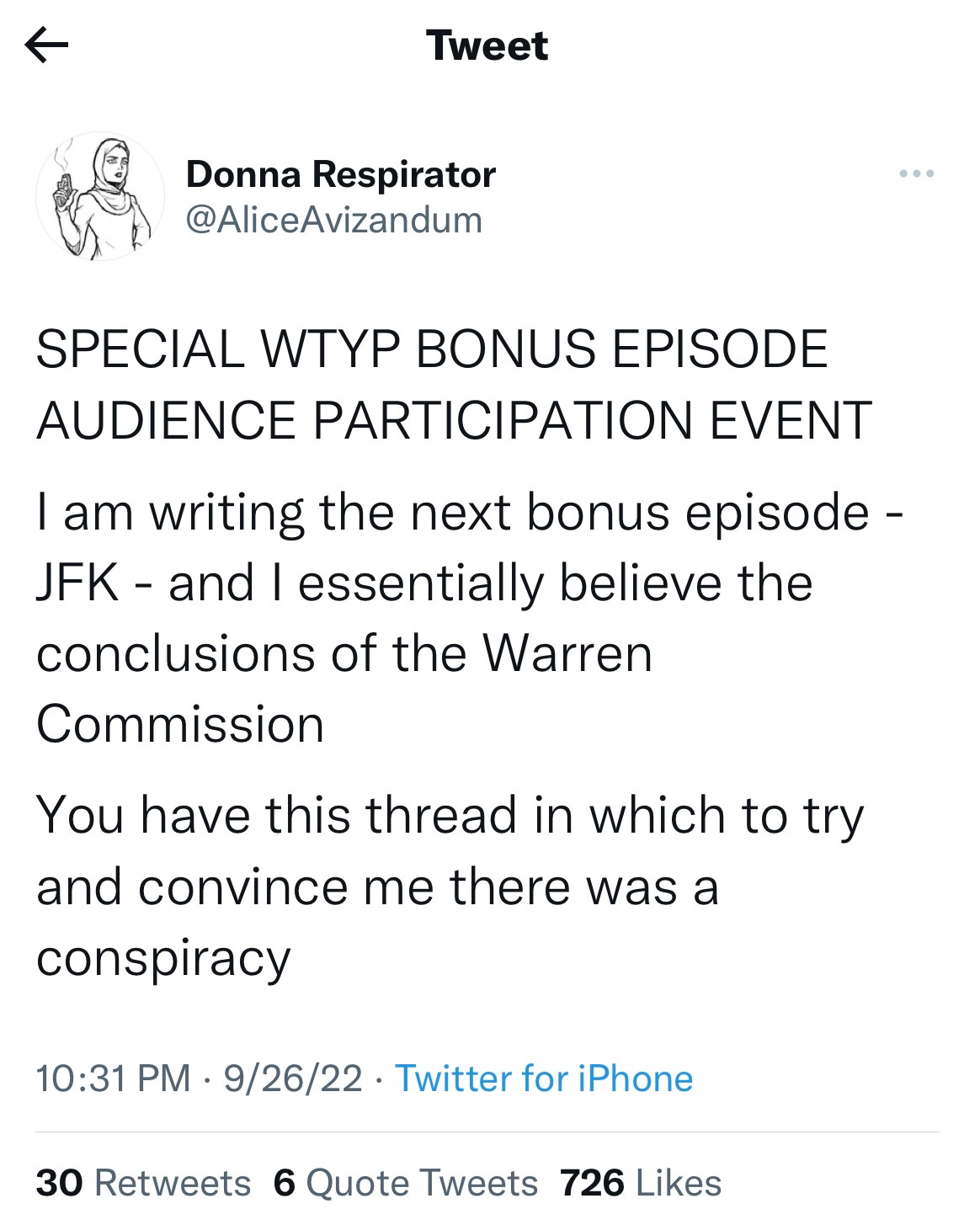
I have no pesonal animosity towards Alice but she has a not insignificant audience on the Anglo-American left so when she endorses the Warren Commission’s conclusion that Lee Harvey Oswald was a deranged communist who acted alone the more uninformed and mentally retarded among her listeners might believe her. It is important for them, and for anybody who follows American politics, to know that the majority of the Warren Commission did not believe the Warren Commission.
There were seven sitting members of the Warren Commission and what they each actually thought about who killed the President is discussed below.
Earl Warren:
Supreme Court Chief Justice Earl Warren did not want to head the Warren Commission. He refused President Lyndon Johnson’s requests to do so twice. Then a strange thing happened. In a November 29th, 1963 phone conversation with Senator Richard Russel Jr President Johnson explains:
President Johnson: [Earl] Warren told me he wouldn’t do it under any circumstances… I called him and ordered him down here and told me no twice and I just pulled out what Hoover told me about a little incident in Mexico City and I say now, I don’t want Mr. Khrushchev to be told tomorrow and be testifying before a camera that he killed this fellow and that Castro killed him…And I think you put on your uniform [in] world war 1…and [would] do anything you could to save one American life…And he started crying and said, well I won’t turn you down… I’ll do whatever you say.
According to the LA Times Johnson is referring to
unverified rumors about the involvement of Soviet or Cuban officials in the Kennedy assassination might push the United States into a war that could “kill 40 million Americans in an hour.”
The “incident in Mexico City” is the suggestion that Lee Harvey Oswald visited the embassies of the Cuban and Soviet governments and there received his instructions to assassinate President Kennedy. This theory was actively being pushed by right wing elements within the US government who wanted to use Kennedy’s murder as a pretext to launch the invasion of Cuba that he had previously vetoed. Johnson was suggesting that if Warren wouldn’t head the Commission that would ultimately find a lone gunman responsible these right wing elements would start a war with Cuba and the Soviet Union that might “kill 40 million Americans in an hour.” It is understandable that Warren thereupon “started crying” in the Oval Office and agreed to serve.
Despite publicly supporting the report that bears his name a biography written by Ed Cray suggests Warren privately attributed the assassination to “the radical right and Texas’s extremely conservative oil millionaires”
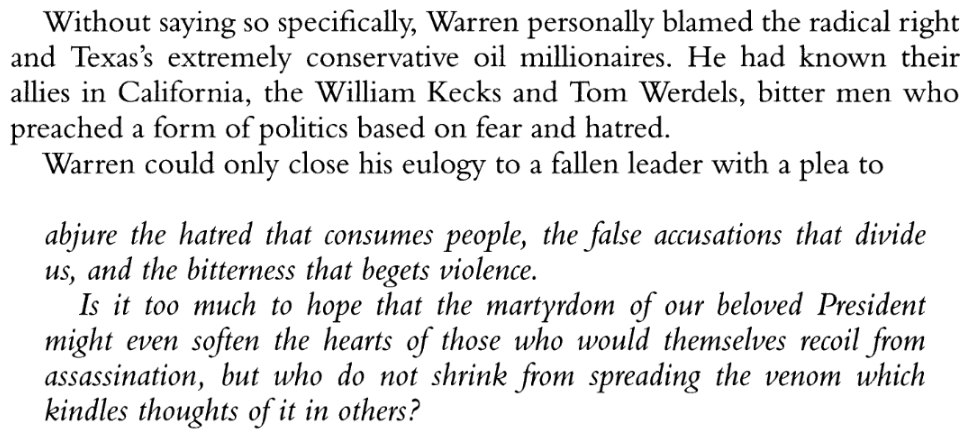
Richard Russel Jr.:
Senator Richard Russel of Georgia was a powerful Dixiecrat and long time friend of President Lyndon Johnson. On September 18th, 1964 Johnson and Russel had another phone conversation discussing the just completed Warren report. Neither man believed in the magic bullet theory, which is the idea that one bullet decided to suspend the laws of physics in order to make seven wounds in two people. A partial transcript of their conversation is produced below.
Senator Russell: They were trying to prove that the same bullet that hit Kennedy first was the one that hit [Governor] Connally, went through him and through his hand, his bone, into his leg and everything else. Just a lot of stuff there. I hadn’t, couldn’t, didn’t hear all the evidence and cross–examine all of them. But I did read the record … I was the only fellow there that … suggested any change whatever in what the staff got up. This staff business always scares me. I like to put my own views down. But we got you a pretty good report.
President Johnson: Well, what difference does it make which bullet got Connally?
Senator Russell: Well, it don’t make much difference. But they said that … the commission believes that the same bullet that hit Kennedy hit Connally. Well, I don’t believe it.
President Johnson: I don’t either.
Senator Russell: And so I couldn’t sign it.
John Sherman Cooper:
Senator John Sherman Cooper of Kentucky also rejected the magic bullet theory. Texas Governor John Connally had been insistent in testimony to the Commission that he and President Kennedy had not been hit by the same bullet. Incidentally Connally would tell journalist Doug Thompson in 1982 that he “[did] not for one second believe the conclusions of the Warren Commission” but chose to remain silent “because I love this country and we needed closure at the time.”
In the papers of Warren Commission General Counsel J. Lee Rankin we find the following statement by Senator Cooper made at the September 18th meeting of the Commission:
“On what basis is it claimed that two shots caused all the wounds?…..It seemed to me that Governor Connally’s statement negates such a conclusion. I could not agree with this statement.”
In public Cooper called the report’s findings “premature and inconclusive.” According to biographer C. David Heymann he directly told Robert, Ted, and Jackie Kennedy that “he felt strongly that Lee Harvey Oswald had not acted alone.”
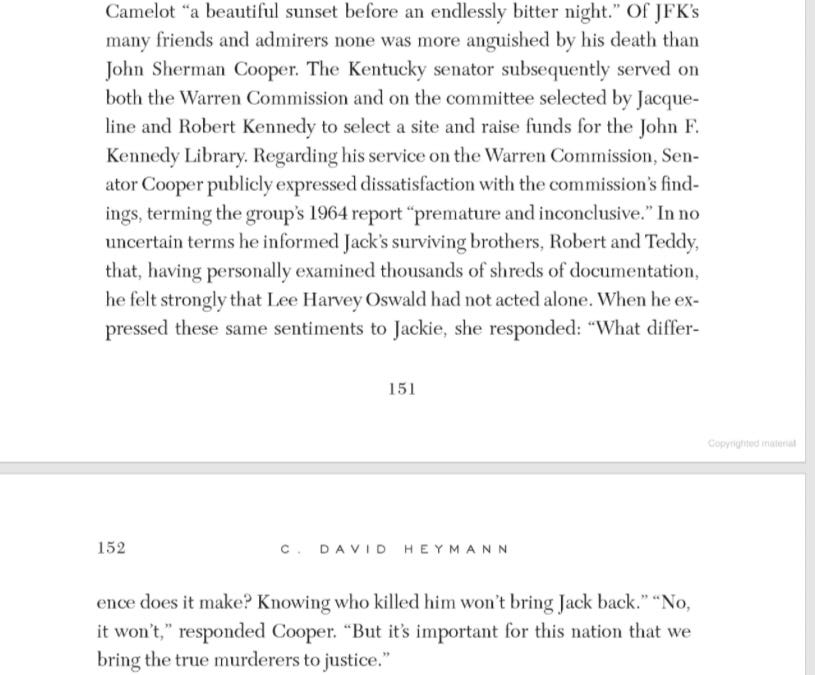
Hale Boggs:

Like Senators Cooper and Russel Louisiana Congressman Hale Boggs remained unconvinced a single bullet struck both Kennedy and Governor Connally. Author Bernard Fensterwald quotes an aide to Boggs as stating that the Congressman repeatedly said “[FBI Director J. Edgar] Hoover lied his eyes out to the [Warren] Commission – on Oswald, on Ruby, on their friends, the bullets, the gun, you name it.” Boggs remained an important figure in the Democratic Party establishment and kept his doubts about the report private, defending it in public on occasions such as a 1966 appearance on Face the Nation.
In April 1971 Boggs, by then Democratic majority leader, spoke to the House of Representatives to demand that J. Edgar Hoover resign as head of the FBI for, among other things, wiretapping members of Congress. Two weeks later he went to the floor again and said “over the postwar years, we have granted to the elite and secret police within our system vast new powers over the lives and liberties of the people…we have exempted those grants of power from due accounting and strict surveillance.” Just over a year later he was dead, the victim of a plane crash possibly caused by a bomb in Alaska. His body and the wreckage have never been found.
Gerald Ford:
Gerald Ford would be instrumental in buttressing the Commission’s conclusion of a lone gunman, moving one of President Kennedy’s wounds from his back upwards to his neck. Ford would soon after be elevated to the position of Vice President and then President without ever winning a national election. Even he questioned the report that was so beneficial to his political career.
French President Valery Giscard d’Estaing told Le Parisien magazine the following about his conversation with then President Ford during his 1976 state visit:
‘Here is an indiscrete question, Giscard said, “You were with the Warren Commission. What was your take?’
“It is not satisfactory,” Ford replied according to Giscard. “We first concluded that it was not an isolated crime, it was something organized. We were sure that it was organized. But we were unable to find out by who it was organized’
He said Ford told him, “We came to the conclusion that this assassination had been prepared. There was a conspiracy. But we were not able to identify which organization had sponsored it.”
John J. McCloy:
John J. McCloy was an advisor to every US President from FDR to Reagan. One of the more shady and powerful background figures in American political history he initially was extremely skeptical about the incomplete and contradictory evidence provided to the Commission. His biographer Kai Bird states that by January 1964 “McCloy was full of doubts about almost every aspect of the case.”
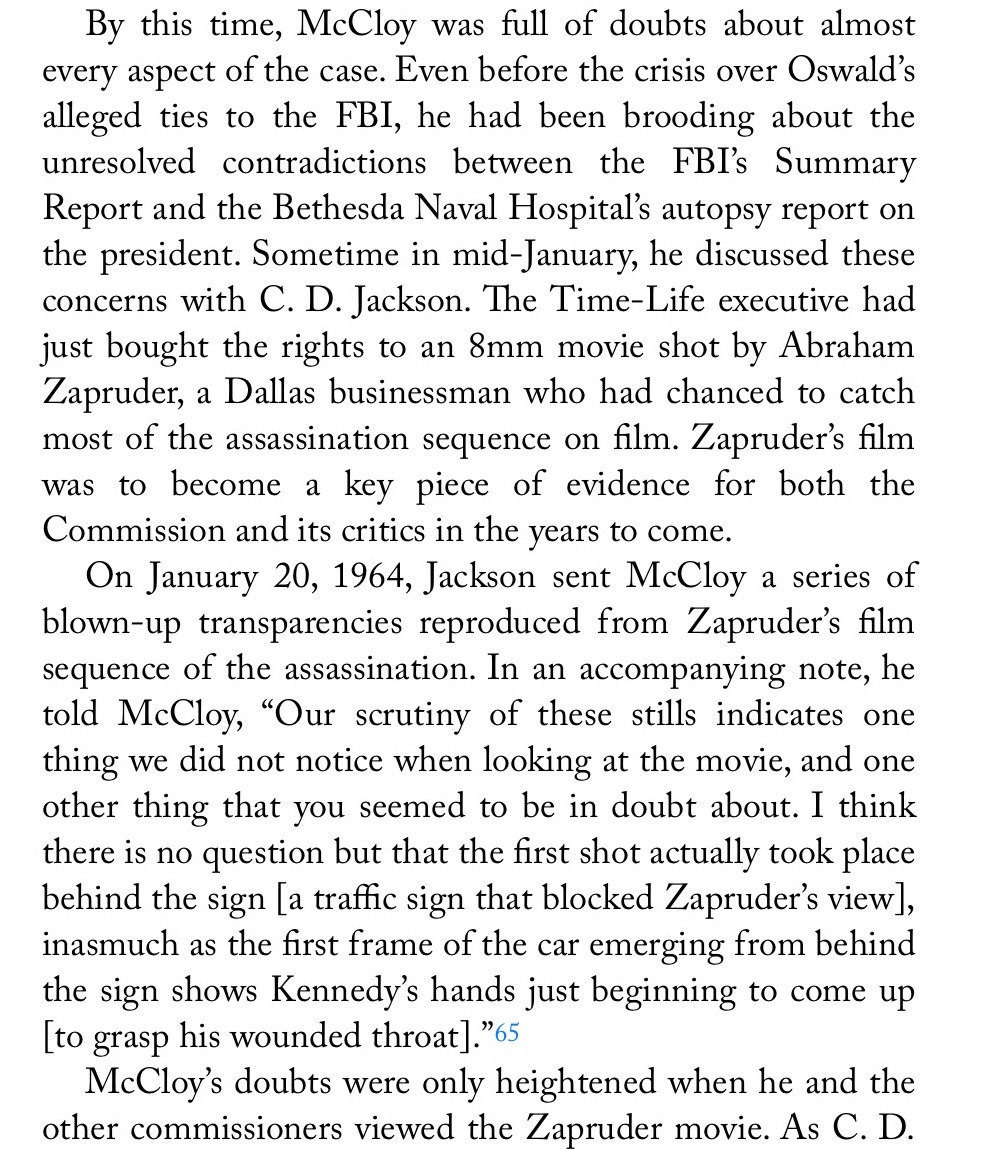
Interestingly it would be a trip to Dallas with former CIA director and Warren Commission member Allen Dulles that would change McCloy’s mind.
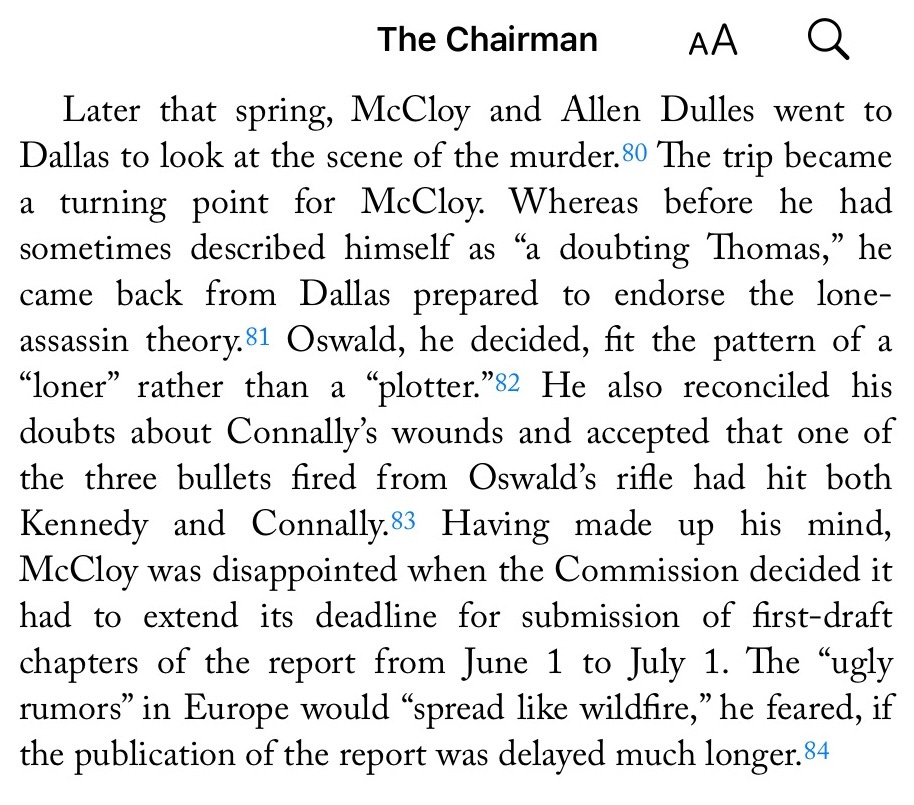
One can only wonder what these two men discussed on their trip to Dallas. What could have been said that was so convincing it turned a skeptic into a true believer? Perhaps Dulles offered McCloy some sort of carrot, perhaps he dangled him out of a window like Suge Knight did to Vanille Ice. We’ll never know.
Allen Dulles:
The one person who never seemed to doubt the findings of the Warren Commission was the one person who never should have been on it. Allen Dulles was the CIA director fired by President Kennedy after the Bay of Pigs fiasco. This conflict of interest was only compounded by Dulles withholding from the Commission his first hand knowledge of the CIA assassination plots against Fidel Castro.
On the Friday that President Kennedy was killed the officially retired Dulles traveled to “the farm”, a secret CIA operations facility in Virginia, where he spent the weekend. During this weekend Lee Harvey Oswald would be shot while in police custody and much of what is still repeated today about Oswald’s supposed background as a deranged communist loner would be established. From 1953 to 1977 more than 400 US journalists would work as assets or agents of the CIA. This offers one plausible explanation for why on November 25, 1963 a then unknown Dan Rather would go on television and lie about having watched the Zapruder film and witnessed Kennedy’s head “move violently forward” after the fatal shot.
A true spy to the end Allen Dulles kept his feelings on Kennedy close to the vest. An exception happened when a young assistant editor from Harper’s magazine named Willie Morris met with him to discuss ghost writing an article about the Bay of Pigs. In their conversation Dulles startled Morris by remarking “that little Kennedy…he thought he was a God.”
Conclusion:
So that’s six of the seven members of the Warren Commission who at one point or another expressed serious doubts about their own report. Then the other one is the guy who killed the President.
If you still wish to believe the Warren Report knowing that the people who wrote it didn’t believe it be my guest. You can believe your boyfriend when he says his phone died and he stayed with a friend last night. You can believe the real estate broker when she says there’s another couple coming to sign today so you better make a deposit now. You can believe the life insurance salesman when he tells you 23 is a great age to purchase a policy.
In your life people will tell you a lot of things that they themselves don’t actually believe. You won’t always know they’re doing it. In the case of the JFK assassination now you do.

